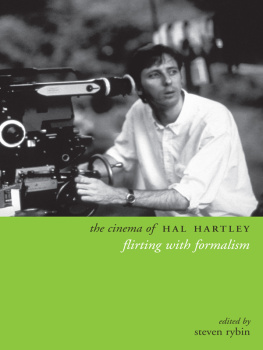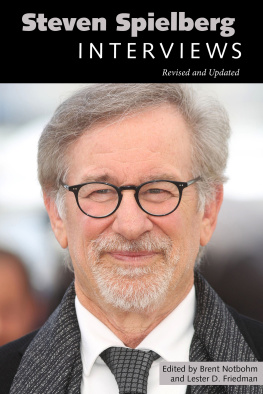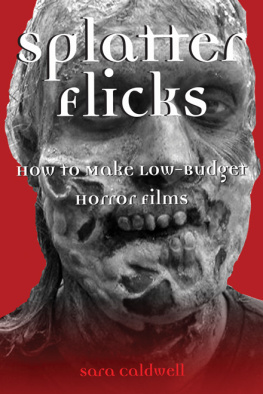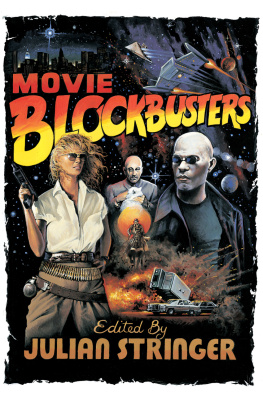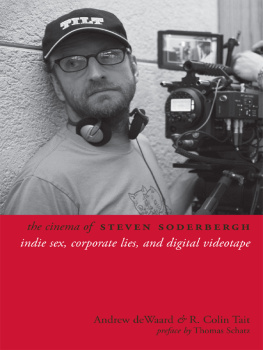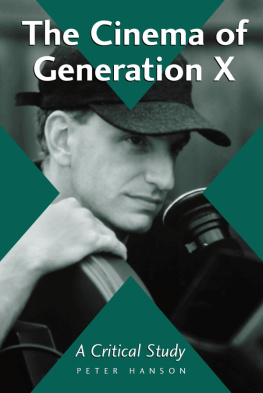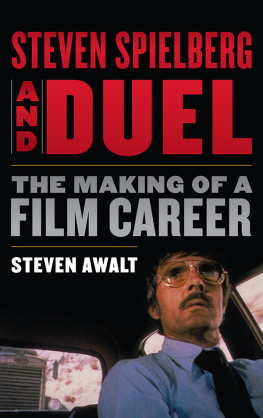Steven Soderbergh: Interviews
Revised and Updated
Conversations with Filmmakers Series
Gerald Peary, General Editor
Steven Soderbergh
INTERVIEWS
Revised and Updated
Edited by Anthony Kaufman

www.upress.state.ms.us
The University Press of Mississippi is a member
of the Association of American University Presses.
Copyright 2015 by University Press of Mississippi
All rights reserved
Manufactured in the United States of America
First printing 2015

Library of Congress Cataloging-in-Publication Data
Soderbergh, Steven, 1963
Conversations with filmmakers series : interviews, revised and updated / edited by Anthony Kaufman.
pages cm. (Conversations with filmmakers series)
Includes index.
ISBN 978-1-62846-209-8 (hardback) ISBN 978-1-62674-540-7 (ebook) 1. Soderbergh, Steven, 1963Interviews. 2. Motion picture producers and directorsUnited StatesInterviews. I. Kaufman, Anthony. II. Title.
PN1998.3.S593A5 2015
791.4302'33092dc23 2014047488
British Library Cataloging-in-Publication Data available
Contents
Terri Minsky / 1989
Michel Ciment and Hubert Niogret / 1989
Michel Ciment and Hubert Niogret / 1992
Michel Ciment and Hubert Niogret / 1993
Michel Ciment and Hubert Niogret / 1995
Kevin Lally / 1995
Patricia Thomson / 1996
Paula S. Bernstein / 1997
Ed Kelleher / 1998
Dennis Lim / 1998
Sheila Johnston / 1999
Michael Sragow / 2000
Anne Thompson / 2000
Dennis Lim / 2000
Anthony Kaufman / 2000
Elvis Mitchell / 2002
Scott Indrisek / 2006
Matthew Ross / 2006
Michael Henry / 2007
Amy Taubin / 2008
Demetrios Matheou / 2009
Scott Macaulay / 2009
Gavin Smith / 2011
Amy Taubin / 2012
Ignatiy Vishnevetsky / 2013
Mike Fleming Jr. / 2013
Steven Soderbergh / 2013
Introduction
Leave it to Steven Soderbergh to tweak the narrative.
When this volume of interviews was first published in 2002, shortly after a banner year in the filmmakers history in which he scored two Oscar nominations for Erin Brockovich and Traffic, the directors trajectory could be described as a bumpy ride to the top, oscillating between hits and misses, low-budget oddities such as Schizopolis and studio hits like Out of Sight, and finally culminating in unprecedented success. As I initially wrote, this collection of interviews could easily be subtitled The Rise and Fall and Rise of an American Director.
But Soderberghs long and prolific career now defies any such easy categorization. From his breakout beginnings in 1989 with sex, lies, and videotape to his retirement from big-screen movie-making in 2013, the directors output looks less like a sine wave and more like an elaborate sinuous experiment, with Hollywood vehicles such as the Oceans Eleven movies, Contagion and Magic Mike appearing just as risky and outside-the-box as low-budget exercises such as Bubble, The Girlfriend Experience, and And Everything Is Going Fine. As Soderbergh once said, Im big on circles, and loops within loops.
For many years after his flavor of the month status with sex, lies, and videotape, he churned out a series of obscure films, which were virtually ignored by the mainstream media, from Kafka to the subtle coming-of-age film King of the Hill to The Underneath, an adaptation of Robert Siodmaks 1949 film Criss Cross. Though Soderbergh appears confident with the aesthetic choices he made while shooting The Underneath in interviews in 1995, there are clues that indicate Soderberghs frustration with the direction of his work. In fifteen years, people will look back at my first four films and they will realize that they were just a preface to a book that I am only now starting to write, he tells Michel Ciment and Hubert Niogret of French film journal Positif. In a way, what I want to do will look a lot like the short films I made when I was young.
Thats exactly what Soderbergh accomplishes with his next project, the stripped-down Schizopolis, which kicked off a rebirth of Soderberghs with the vivid subhead, His First Film, sex, lies, and videotape, Put Him on Top of Hollywoods Hill. He Predicted That It Was All Downhill from There. Why Was He Right? Scott Collins finds the director at a crossroads. Having just finished the difficult, but regenerative task of shooting Schizopolis and not sure where to turn next, Soderbergh echoes the same sentiments that were only hinted at during the Positif interview, but with more chilling detail. To sit on a movie set at age thirty-one and wonder whether or not you even want to do this, having no other real skills, is so terrifying and depressing, he says. Although Soderbergh admits he felt better than ever after the creative outburst that was Schizopolis, Collins paints him in a far more ominous light: The article ends with Soderbergh imagining his own early death in a plane crash.
In the Schizopolis interviews that appear here, however, there is little of the gloom and doom that appeared in the L.A. Times. Soderbergh is less serious and more thrilled with Schizopoliss ultra-low-budget, freewheeling style. I needed a lark, he tells Patricia Thomson in the Independent Film and Video Monthly in late 1996, after festival screenings at Toronto and the Hamptons where Soderberghs dual energizing efforts Schizopolis and Grays Anatomyan adaptation of Spalding Grays monologuewere screened. I think what will happen is Ill end up applying a lot of things that I got out of Schizopolis to something a little less schizophrenic, he continues. Moving from super-structured to more improvised, Soderberghs subsequent films all seem to benefit from this pivotal turning point in his thinking.
In the interviews post-Schizopolis, a reinvigorated Soderbergh comes forward, echoing the humor and lack of pretension in his first sex, lies conversations. The trick was finding that right balance between not fucking it up and staying loose, he tells the Village Voices Dennis Lim about 1998s Out of Sight, the George Clooney/Jennifer Lopez film that attracted Hollywood attention and garnered Soderbergh his first entrance into the mainstream. In the Out of Sight interviews here by Lim and Film Journal Internationals Ed Kelleher, Soderbergh continues to reflect on the stimulating aspects of Schizopolis, but also discusses his new entry into Hollywood filmmaking, the star power of Clooney and Lopez and the importance of the genre film to his once-again burgeoning career.
With his next film The Limey, Soderbergh begins commenting on another influence on his work, British director Richard Lester (A Hard Days Night), with whom Soderbergh collaborated on the irreverent Faber and Faber book Getting Away with It. Combining interviews between Lester and Soderbergh, and diaries from a particularly difficult moment in Soderberghs career right after finishing The Underneath, the book figures as an important part of the directors creative output. In an interview published in January 2000 following its publication, Michael Sragow speaks with Soderbergh extensively about his renewal, reflecting on the career pitfalls that plagued him and what efforts he took to combat his lack of enthusiasm for filmmaking after making
Next page

